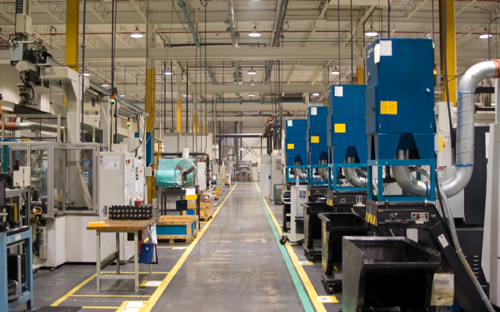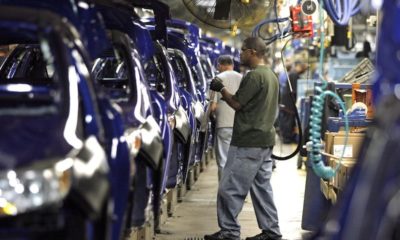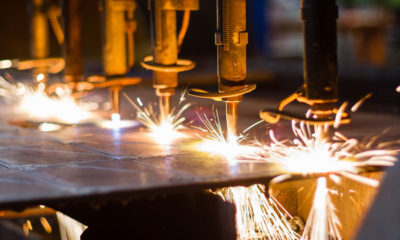In a bid to revitalize the Nigerian automotive industry and reduce dependency on imported auto parts, the Federal Government has unveiled an ambitious plan to kickstart local manufacturing initiatives.
Spearheaded by the Minister of Industry, Trade, and Investment, Doris Aniete, the initiative aims to stimulate growth in the sector by increasing the supply of locally produced components to the market by 40%.
Announcing the policy during a ministerial sectoral briefing to commemorate President Bola Tinubu’s first year in office, Aniete emphasized the importance of collaboration among manufacturers, dealers, regulatory bodies, and other stakeholders in the automotive ecosystem.
This collaborative effort, she stated, would be instrumental in addressing challenges, streamlining processes, and driving innovation within the industry.
For years, Nigeria has heavily relied on imports to meet the demand for vehicles and spare parts, with a significant portion of automotive components imported from abroad.
According to Luqman Mamudu, Chairman of the West Africa Automotive Show, Nigeria alone accounts for about 78.8% of automotive components imported to the region, amounting to approximately $4.2 billion annually out of the $6.2 billion spent by the region.
The newly developed framework aims to change this narrative by prioritizing the local production of critical automotive components such as tyres, batteries, brake pads, and more.
By fostering collaboration between stakeholders and incentivizing local manufacturing, the government seeks to create a more sustainable and self-reliant automotive industry.
Aniete highlighted the potential economic benefits of the initiative, citing significant foreign exchange savings through domestic production of parts.
She stressed that by reducing the need for imports, the country could conserve foreign exchange reserves and bolster its currency while simultaneously stimulating job creation and economic growth.
Furthermore, the government has attracted substantial investment capital amounting to $3.5 billion to develop a resurgence plan for the Nigerian Cotton, Textile, and Apparel Industry.
This initiative, undertaken in partnership with development partners and private sector players, aims to unlock the full potential of the sector and create additional opportunities for growth and employment.
In addition to these initiatives, the Ministry of Industry, Trade, and Investment disclosed plans to host the Lagos International Trade Fair, signaling a renewed commitment to reclaiming Nigeria’s position as a regional market powerhouse.
The revival of this trade fair, last hosted 14 years ago, is expected to amplify market linkages for manufacturers, suppliers, farmers, and traders nationwide, catalyzing economic activities across various sectors.
As transformative reforms unfold in the Nigerian automotive and textile industries, the government remains focused on unlocking equitable opportunities for farmers, miners, and entrepreneurs.
With stringent regulations and collaborative frameworks in place, Nigeria is poised to chart a new course towards sustainable economic development and self-reliance in key sectors.

 Billionaire Watch2 weeks ago
Billionaire Watch2 weeks ago
 Startups4 weeks ago
Startups4 weeks ago
 News4 weeks ago
News4 weeks ago
 News4 weeks ago
News4 weeks ago
 Bitcoin4 weeks ago
Bitcoin4 weeks ago
 Naira4 weeks ago
Naira4 weeks ago
 Forex3 weeks ago
Forex3 weeks ago
 Treasury Bills4 weeks ago
Treasury Bills4 weeks ago























